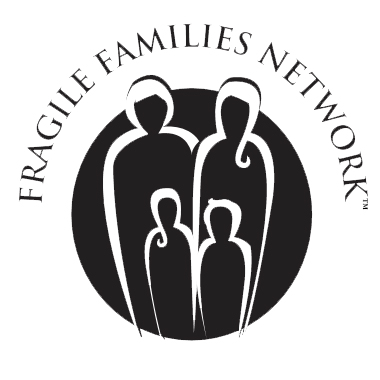The Stabilizing Power of Kinship Care Placements: Providing Continuity within Family Networks

Placements with relatives have emerged as a vital strategy for ensuring the well-being of children who cannot be cared for by their biological parents. Unlike traditional foster care, kinship care involves placing children with relatives or close family friends, providing them with a sense of stability and continuity. This approach leverages the strength of existing family networks to create a nurturing environment that supports the child’s emotional, social, and psychological needs. Understanding the benefits and challenges of kinship care is essential for maximizing its effectiveness and ensuring positive outcomes for children.
Understanding Kinship Care Placements
Kinship care placements are defined by their reliance on family networks to care for children in need. These arrangements can be formal, involving legal custody and oversight by child welfare agencies, or informal, where families take on caregiving responsibilities without formal recognition. Regardless of the arrangement, the underlying principle remains the same: keeping children within their familiar family environments to provide stability and continuity.
The Benefits of Kinship Care
- Stability and Continuity:
- Familiarity: Being placed with relatives or close family friends helps children maintain a sense of familiarity, which is crucial during times of upheaval. They can stay connected to their cultural, linguistic, and familial traditions.
- Emotional Security: Familiar caregivers can provide a sense of emotional security, reducing the trauma and anxiety associated with being separated from biological parents.
- Maintaining Family Connections:
- Sibling Bonds: Kinship care placements often allow siblings to stay together, preserving vital sibling bonds that can provide emotional support.
- Extended Family Relationships: Maintaining connections with extended family members helps children feel a continued sense of belonging and identity.
- Cultural Continuity:
- Cultural Identity: Children placed in kinship care are more likely to maintain their cultural identity and traditions, which can be a source of strength and stability.
- Language Preservation: Being cared for by relatives who speak the same language helps preserve linguistic ties, which is especially important in multicultural and multilingual families.
- Improved Outcomes:
- Better Mental Health: Studies have shown that children in kinship care placements often experience better mental health outcomes compared to those in non-kinship foster care.
- Educational Stability: Kinship care can provide greater educational stability, as children are less likely to change schools frequently.
Challenges of Kinship Care
Despite its many benefits, kinship care placements also present unique challenges that need to be addressed to ensure their success:
- Legal and Financial Issues:
- Lack of Formal Recognition: Informal kinship care arrangements may lack legal recognition, complicating access to services and resources.
- Financial Strain: Kin caregivers often face financial challenges, as they may not receive the same financial support as non-kin foster parents.
- Support and Resources:
- Access to Services: Kin caregivers may struggle to access necessary support services, such as counseling, educational resources, and healthcare.
- Training and Education: Providing kin caregivers with training and education on child development, trauma-informed care, and navigating the child welfare system is essential for their success.
- Emotional and Psychological Strain:
- Caregiver Stress: Taking on caregiving responsibilities can be stressful for kin caregivers, who may already be dealing with their own personal and financial challenges.
- Child’s Emotional Needs: Children in kinship care may still experience emotional and psychological challenges related to their separation from biological parents, requiring ongoing support and counseling.
Enhancing the Effectiveness of Kinship Care
To maximize the benefits of kinship care placements, several strategies can be employed:
- Providing Legal and Financial Support:
- Legal Aid: Offering legal assistance to kin caregivers can help them secure formal custody or guardianship, ensuring access to services and benefits.
- Financial Assistance: Increasing financial support for kin caregivers, including subsidies and grants, can alleviate economic pressures and support the caregiving role.
- Expanding Access to Services:
- Healthcare and Counseling: Ensuring that kin caregivers and the children in their care have access to comprehensive healthcare and mental health services is crucial for their well-being.
- Educational Resources: Providing educational support, including tutoring and school advocacy, can help children in kinship care succeed academically.
- Training and Support Programs:
- Caregiver Training: Developing training programs that equip kin caregivers with the skills and knowledge needed to address the unique challenges of kinship care.
- Support Groups: Establishing support groups for kin caregivers can provide emotional support, practical advice, and a sense of community.
- Policy Advocacy and Reform:
- Policy Changes: Advocating for policy changes at the local, state, and national levels to recognize and support kinship care placements, including financial assistance and access to services.
- Awareness Campaigns: Raising public awareness about the importance and benefits of kinship care can garner broader support and resources for these families.
Kinship care placements offer a powerful solution for providing children with stability and continuity by placing them within familiar family networks. By leveraging the strengths of existing family relationships, kinship care can support the emotional, social, and psychological well-being of children during times of crisis. However, to fully realize the potential of kinship care, it is essential to address the legal, financial, and support challenges faced by kin caregivers. Through comprehensive support services, training programs, and policy advocacy, we can ensure that kinship care placements are a viable and effective option for all children in need, providing them with the stability and continuity they deserve.
©2024 Fragile Families NETWORK







